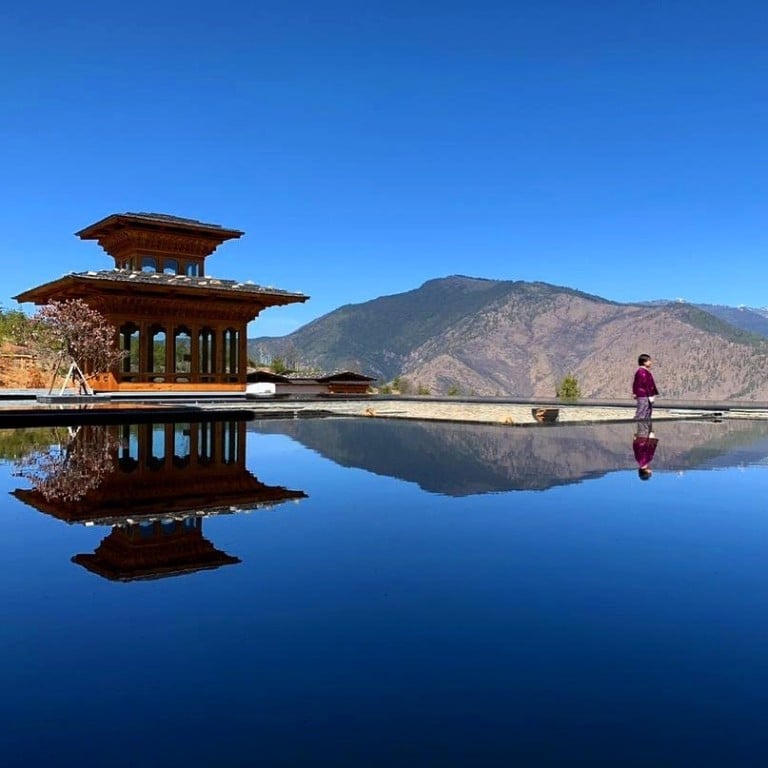Why does Bhutan call itself the ‘happy kingdom’ – and is it really worth a US$250-a-day tourist tax to visit?

To get to the heart of the landlocked South Asian nation, bordered by India and Tibet, one must cast off disbelief, embrace its myths, and pass on the kindness one receives
Figures wrapped in swathes of saffron and scarlet shuffle soundlessly through steep stairways blackened by 500 years of soot from incense and yak-butter lamps at Gangtey Goemba. Young monks and nuns from other temples in western Bhutan have gathered here for a special ceremony.
One of them is 21-year-old Kuenzang Sangay Rangdrol. If not for the additional colours he wore and the onslaught of locals walking up to him for a blessing, he would have blended in with the other monks. Kuenzang was revealed to be the seventh Rinpoche reincarnate of Rinpoche Bhumthang Shrumstrang when he was five years old. (A Rinpoche is an honorific term meaning “precious one”). He is one of over 3,000 venerated rinpoches in a country of 700,000.
At Gangtey Goemba there is a room that houses what is supposedly a yeti’s arm. Like most Bhutanese, Tsering Pelden, my guide from Druk Asia, views the Himalayan creature as fact, rather than fiction. She believes in Rinpoche reincarnation and the stories which form a spiritual thread that ties the country together.
In Bhutan, known as the “happy kingdom”, is faith what brings happiness, or does happiness engender faith in the far-fetched?
The otherworldly vistas in Phobjikha Valley are enough to turn sceptics into believers. The mist that rises from the valley floor swirls aside, allowing me to see blue pine forests, fields with potato farms and stone houses, and lush wetlands where pot-bellied Bhutanese horses graze and endangered black-necked cranes descend every winter. In the face of such transcendent beauty, your cynicism wanes and you think that this fantastical place might be a place where magic happens.
Bhutan is unlike any other country. Although steeped in religious folklore, it is more progressive than many first world countries in some ways. Thanks to the forward-thinking commitment to preserve its forest cover at 70 per cent, Bhutan is the world’s first carbon negative country. Bhutan began advocating mental wellness in 1972 when Jigme Singye Wangchuck, the fourth king of Bhutan, coined the term gross national happiness (GNH).
The lure of Bhutan was reaffirmed when Lonely Planet listed it as the top travel destination in 2020. Because of barriers to visiting, such as having to pay a minimum daily fee of US$200 to US$250 (in line with the government’s vision of high-value, minimum-impact tourism), Bhutan tends to draw the affluent. The late David Tang, founder of Shanghai Tang, celebrated his 50th birthday at the Amankora lodges when the luxury chain opened in Bhutan in 2004.